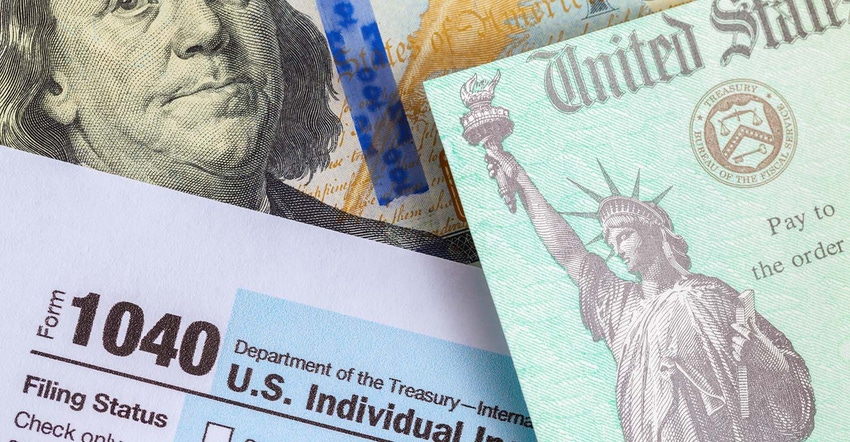
We’ve all heard the famous Benjamin Franklin quip — “In this world, nothing is certain but death and taxes.” Some farmers still try their darndest to avoid the latter. But is this the smartest tactic in 2022? The stakes are higher than they have been in a long time.
Tina Barrett, program manager with Nebraska Farm Business Inc., offered a salient example of why sending a bit of your profits to the IRS might not be all bad in a recent issue of Cornhusker Economics.
“The profitability built in 2021 may need to be used to withstand future downturns,” she wrote. “Watch spending, especially capital purchases that are only needed to buy down a tax bill. Spending $100,000 on equipment you do not need to save $30,000 in taxes does not preserve your liquidity like paying $30,000 in taxes and having $70,000 of cash or reducing your operating note does.”
Barrett does say when you truly need to update or upgrade equipment, it’s a good investment. But “it’s rarely a good return if you’re just buying something to save taxes.”
Put bluntly: “When you’re in a good liquidity position, you have the option to farm next year,” she says.
Paul Neiffer, principal with CliftonLarsonAllen LLP, agrees that liquidity leaves more options: “I’m a firm believer in having sufficient capital to do what you want to do.”
Farmers should still work with their accountant to stay in a lower tax bracket of 10% or 12%, Neiffer says — without solely resorting to equipment depreciation deductions.
Have you considered opening a Roth or traditional IRA? As business owners, farmers can also tap into programs such as the tax-favored Simplified Employee Pension.
Retirement equity
And despite some rumblings in Washington, Neiffer says Social Security is here for the long haul. “Some changes are possible, but it probably won’t be drastic,” he says.
Those programs will let you build up valuable retirement equity — an underappreciated asset for transition planning. “Too many farmers say the land will be their retirement, which can create trouble in succession,” Neiffer says.
Tim Schaefer, founder of Encore Consultants, agrees that farms entering into succession have to be careful about their tax strategies. “Especially in transition, the best farms have very specific spending budgets that aren’t driven by taxes,” he says. “They make more decisions based on economic reasons vs. tax reasons.”
Therefore, any major farm expenditure should pass a simple one-question test: Is it necessary?
“Does it make sense to buy it now?” Schaefer asks. Combines and other large equipment can be expensive to fix. When the repair bills pile up, is there a case to trade it in, or should it stay on the roster?
Take copious notes on what repairs have been done on each piece of equipment, and these decisions become much easier, Schaefer says.
“Good records will justify your spending,” he says.
About the Author(s)
You May Also Like






